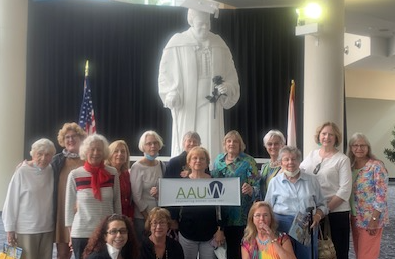VICTIMS OF HUMAN TRAFFICKING: INTERSECTIONS WITH THE COURT SYSTEM
Victims of human trafficking interact with various aspects of the justice system, from juvenile justice to criminal court, to specialized court calendars, probation and services. Whether you are a judge, attorney, court officer, service provider or other allied professional, understanding how and where victims come into contact with the justice system is an important first step in equipping victims with help.
WHAT IS HUMAN TRAFFICKING?
Human trafficking is a form of modern-day slavery where people profit from the control and exploitation of others; this crime occurs when a trafficker uses force, fraud, or coercion to control another person for the purpose of engaging in commercial sex acts or labor services against his/her will.
Traffickers use violence, threats, blackmail, false promises, deception, manipulation, and debt bondage to trap vulnerable individuals in horrific situations. Sex trafficking has been found in a wide variety of venues within the sex industry, including residential brothels, online escort services, fake massage businesses, strip clubs, and street prostitution. Labor trafficking has been found in diverse labor settings including domestic work, small businesses, large farms, and factories.
Who Are The Victims?
The International Labor Organization estimates that there are 20.9 million victims of human trafficking globally, with hundreds of thousands in the U.S. The victims of this crime in the U.S. are men and women, adults and children, and foreign nationals and U.S. citizens. As defined under U.S. law, victims of human trafficking can be divided into three populations:
- Children under age 18 induced into commercial sex.
- Adults age 18 or over induced into commercial sex through force, fraud, or coercion.
- Children and adults induced to perform labor or services through force, fraud, or coercion
Who Are The Traffickers?
Traffickers are those who lure people into forced labor and sex trafficking by exploiting their vulnerabilities. These traffickers prey on people who are hoping for a better life, lack employment opportunities, have an unstable home life, or have a history of sexual or physical abuse. Runaway and homeless youth are particularly at risk. Traffickers promise a high-paying job, a loving relationship, or exciting opportunities. In other cases, they kidnap victims or use physical and psychological violence to control them.
General Indicators of Human Trafficking: Know the Signs
- Not free to come and go as he/she wishes
- Under 18 and providing commercial sex acts
- Adults forced, coerced, or defrauded into
providing commercial sex.
- Unpaid, paid very little, or paid only with tips
- Works excessively long hours, no breaks
Has few or no personal possessions
Is not in control of his/her own money
Owes a large debt and is unable to pay it off Recruited through false promises
High security measures at work, residence
Signs of physical/sexual/emotional abuse
HUMAN TRAFFICKING VICTIMS IN THE COURT SYSTEM
Victims of human trafficking may be engaging with the court system in civil, criminal or administrative matters, as parties or witnesses; sometimes you may know their history and other times you will not. Below are instances where you might observe that a litigant is or has been a victim of human trafficking. Your response should be tailored to each person, but may include helping a person secure services and other help.
Criminal Matters
- Anyone under age 18 accused of prostitution- related offenses
- Adults accused of prostitution-related offenses who are forced, coerced or defrauded into commercial sex (including massage parlors, residential brothels, online escort services, etc.)
- Witnesses may be victims of trafficking; look for signs of abuse or control
- Defendants charged with drug-related, shoplifting, forgery or other crimes may be doing so at the behest of a trafficker
Domestic Violence
Victims made to provide commercial sex or labor by an abusive spouse or intimate partner; abusers may exploit victims in exchange for drugs, cash, housing
Family Court/Juvenile Justice:
In custody/visitation cases, victims may have a child in common with their trafficker; the trafficker may threaten to use history of prostitution against a victim
- Runaway or homeless youth engaged in commercial sex, or being forced to work;
- Repeat charges of vagrancy, loitering or truancy may indicate potential connection to commercial sex work
- Minors in child welfare proceedings who are induced into commercial sex by parent(s), guardians, other family members
- Juvenile delinquency may involve trafficking if there is a controller who arranges dates for the child to engage in commercial sex, or who forces the child to engage in work, whether legal or illegal
Specialized Court Calendars:
Drug court or mental health court defendants may include survivors of trafficking who would benefit from case management services addressing trauma
Workers’ Compensation:
Contractors or sub-contractors engaged in severe employment law violations such as physically isolating or threatening workers, forcing them to work, confiscating workers’ identification documents
SAFETY FOR VICTIMS
- Communicate with discretion: victims cannot speak freely in the presence of a trafficker and may not be able to access help from others if the trafficker is present. Make arrangements for victims to access confidential help.
- Neutral interpreting service is vital; cultural expectations may compel a victim to stay silent, victims who have a social connection to an interpreter may be shamed into silence or changing his/her story.
- Connect to services: Know which local organizations can provide safety planning, case management or other resources. Don’t know where to go? Call or email the NHTRC to find out.
WHERE CAN YOU FIND MORE INFORMATION?
The National Human Trafficking Resource Center (NHTRC) maintains a database of service providers and resources throughout the United States. Victims and advocates and judges, friends, family and others can call or text 24 hours a day for help.
Call 24/7: 1-888-373-7888 or Text: BeFree (233733)
Email: NHTRC@polarisproject.org
Report a Tip or Access Resources and Referrals: www.traffickingresourcecenter.org
This document was developed in conjunction with the Center for Court Innovation.
